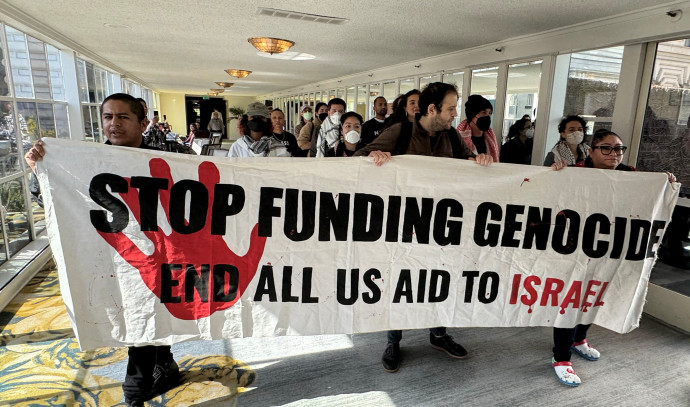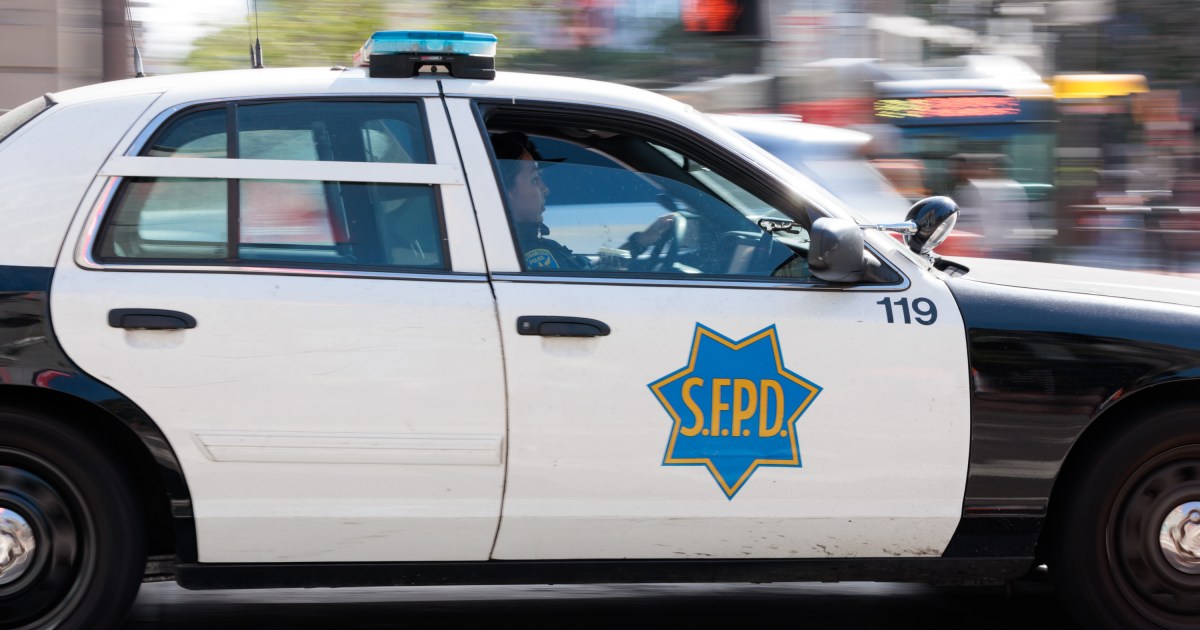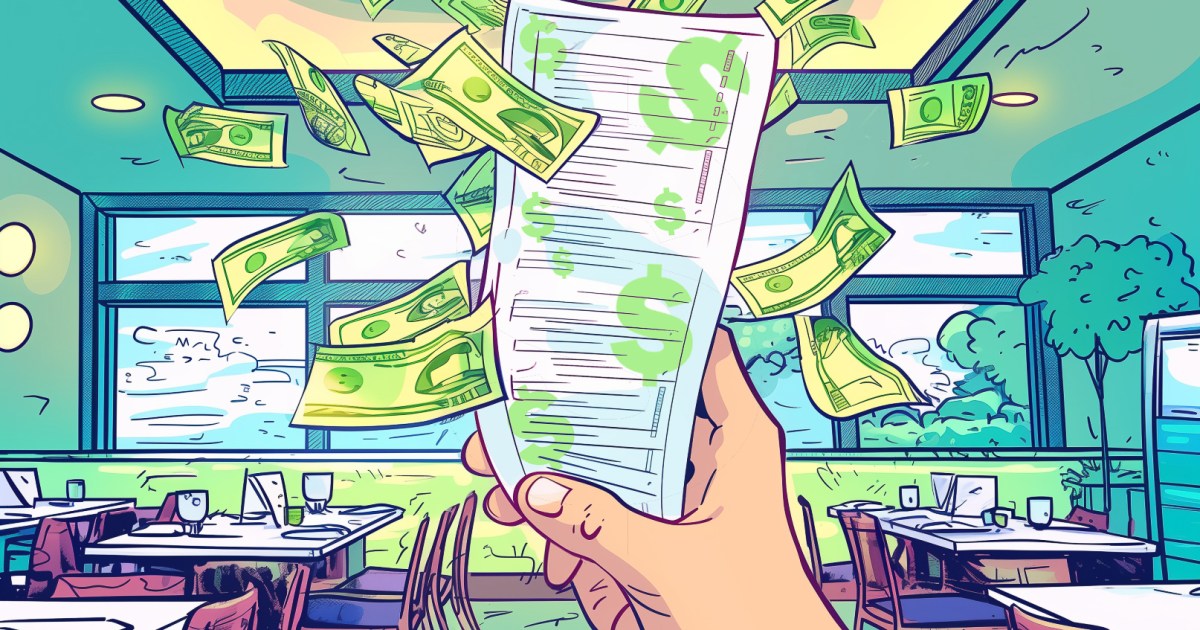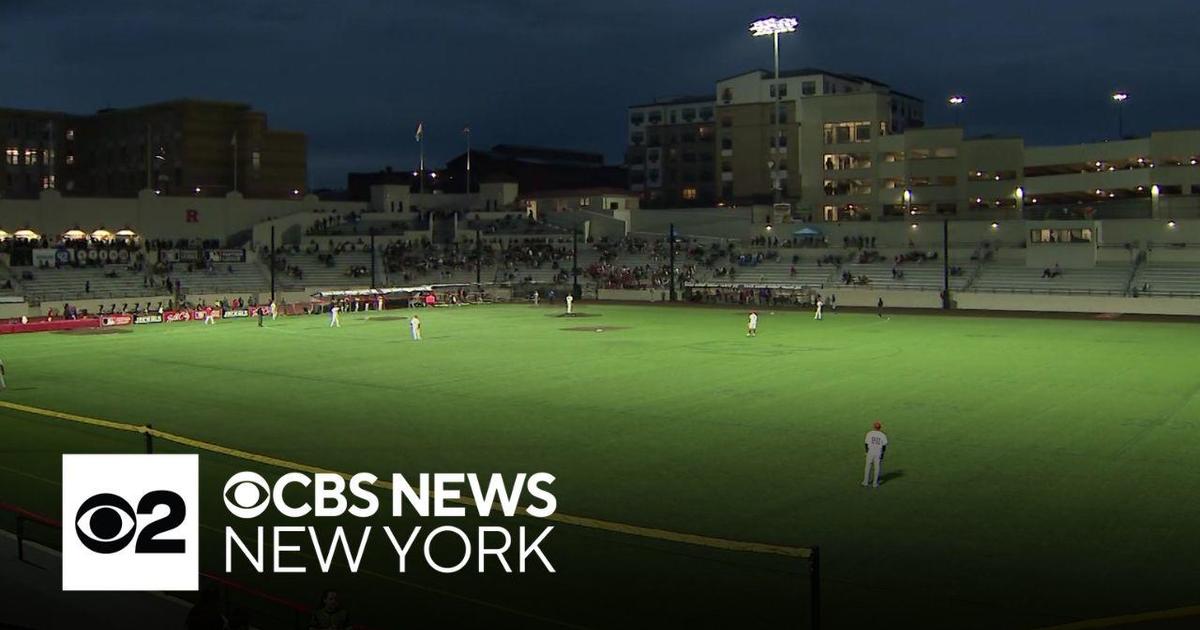My business partners and I opened our NoPa restaurant, Che Fico, in 2018. From the start, we included a 4% surcharge to cover the additional costs we faced under the city’s mandated health care coverage plan, which requires restaurants to contribute to a city fund for employees.
San Francisco, CA
San Francisco Senator decries anti-Israel rally at San Francisco Jewish community gala

Senator Scott Wiener said anti-Israel demonstrations at the Jewish Community Relations Council 75th anniversary Gala in San Francisco on Sunday crossed a line.
Wiener said that the event was a Jewish community event that featured many Jewish groups, community leaders, and houses of worship.
“This targeting of a major Jewish community event comes on the heels of the targeting of a march against antisemitism that took place in SF a week ago. We’re seeing an escalation where instead of simply protesting the war, protesters are also targeting Jews & their community organizations,” Wiener said on Monday on social media. “People have every right to protest the war. I respect those protests. Protesting & targeting Jewish community gatherings, however, is a very, very different thing. It crosses a line.”
Wiener said that the JCRC was founded in response to the antisemitism that led to the Holocaust, and since then it has worked to support the community and oppose antisemitism in the Bay Area and around the world.
Anti-Zionist activists protested
Jewish Voice for Peace Bay Area rejected Wiener’s statements as dishonest, as the protest was led by Jews to criticize JCRC’s “racism” and Zionism.
“We gathered to protest SFJFRC because time & time it chooses the side of Israel in this ongoing genocide, maligned Palestinian activists, called an Arab organizing group ‘pro-terrorist,’ likely referencing JCRC Bay Area CEO Tye Gregory calling San Francisco-based Arab Resource and Organizing Center “pro-terrorism” in November for allegedly legitimizing Hamas actions post-October 7. “Because Scott is allied with them, he twists criticism into antisemitism — it’s easier than reckoning with why he or JCRC hasn’t called for a ceasefire as 30,000 have been killed.”
The Gala proceeded with speakers such as Battae Founder Ashager Araro and Wiener himself. He praised JCRC as a pillar of the community. Outside, JVP said it protested the organization’s “legacy of racism” with signs that said that “most US Jews support a ceasefire,” and “never again for anyone.”

San Francisco, CA
President Biden to return to San Francisco for fundraising events as he draws line on military aid t

Watch CBS News
Be the first to know
Get browser notifications for breaking news, live events, and exclusive reporting.
San Francisco, CA
Driver allegedly threw $20 at victim, hit teen walking to school

A driver who struck two people, including a 14-year-old, in separate hit-and-runs on Tuesday returned to the scene of the first collision to throw a $20 bill at the victim before hitting the teen, according to officials.
The suspect, identified as 54-year-old Rodney Jefferson, was doing doughnuts with his vehicle before striking the first victim, who was crossing the street in the Tenderloin, the San Francisco District Attorney’s Office said. Jefferson later allegedly sped around another car that had stopped to allow children to cross the street outside a North Beach school when he hit a 14-year-old girl.
The DA’s Office formally charged Jefferson on Thursday with two counts of leaving the scene of an accident, reckless driving causing injury, evading police officers and driving on a suspended license.
“This type of behavior simply cannot and will not be tolerated whatsoever in this city,” District Attorney Brooke Jenkins said in a press release. “My office will do everything in our power to keep the public safe and to ensure that there is accountability for this conduct.”
Prosecutors said that after striking the pedestrian in the Tenderloin, Jefferson returned a minute later and threw a $20 bill at the victim before driving away again.
Later that morning, San Francisco police officers spotted Jefferson’s Mustang running a red light in the Tenderloin. Officers attempted to pull Jefferson over, but he did not stop, so police began to chase his vehicle, officials said.
He then allegedly continued to drive recklessly, running multiple stop signs and red lights while evading officers.
San Francisco, CA
Opinion | Restaurateur: New law aimed at transparency will hit SF restaurants hardest

When Che Fico reopened post-pandemic, we were driven by a mission to rectify long-standing industry injustices that disproportionately favored a select few—primarily servers and bartenders—at the expense of other workers who didn’t receive tips and worked long hours in substandard conditions. We instituted a 10% surcharge, increased pay across the board and introduced new benefits, such as a 401(k) plan with a 4% match and profit sharing.
It was not easy. We had to adjust our shared tip pool several times to ensure everyone was included and that it was fair to our entire staff. We also increased hourly wages to compensate for potential tip losses. This model epitomized free-market capitalism, where ownership collaborated with labor to find common ground and consumers had the choice to support a business that resonated with their values. Our menu was always clear that the charge would be added to the final bill.
Now a new law known as the “junk fee” bill, taking effect July 1, aims to reshape California’s dining industry by banning restaurants from adding surcharges or service fees to their bills. Instead they’d have to raise menu prices, baking the surcharge in.
While this may initially appear to benefit consumers, it will disproportionately harm small businesses—the latest move in a pattern of well-meaning yet detrimental policy decisions targeting the restaurant industry. It also obscures the challenge of operating in San Francisco, where voters and officials have repeatedly approved costly additional mandates that operators elsewhere do not face.
We can all agree that hidden fees are frustrating. Nothing is worse than booking a hotel room at an advertised price, enjoying your stay and upon checkout, finding your bill laden with resort charges, Wi-Fi charges, valet parking and other surprise fees and taxes. I fully understand the frustration. I am a consumer myself. But the vast majority of restaurants don’t operate this way. If they charge surcharges or service fees, they post it on menus and let guests know when they book a reservation.
Transparency is the goal, and this is one way for operators to show customers all the things they are paying for, beyond the cost of food. Guests have thousands of restaurants to choose from, especially in San Francisco. They can simply decide a certain restaurant isn’t worth the fee. And no restaurateur who believes in good service and repeat business wants to leave a bad taste in a customer’s mouth upon dropping the check.
But the new law focuses more on appearances than on the operational realities of managing a restaurant in one of the nation’s most expensive urban environments.
Gavin Newsom enacted San Francisco’s Health Care Security Ordinance during his tenure as San Francisco mayor. As governor, he continues to influence policy in ways that strain local enterprises. The health ordinance has been one of the most damaging things to happen to San Francisco small businesses and can be directly linked to the beginning of the surcharge trend here. One of the most pervasive problems with that legislation is that it punishes businesses for growing and hiring more workers, adding a cost of several dollars per hour per employee for businesses with 20 or more workers. But rather than use his post as governor to propose a smart, statewide reform of the health ordinance, this new junk fee bill will throw out all surcharges regardless of their purpose or how they are communicated to consumers.
Advocates of eliminating service charges argue that doing so protects consumers, but that fails to consider the pressure San Francisco restaurants face—challenges beyond typical market fluctuations. They contend with some of the highest insurance premiums in the country, soaring utility rates from providers like Pacific Gas & Electric and a labor market characterized by escalating wages and staffing shortages. Consider:
Labor costs are rising: San Francisco’s minimum wage rose from $10.74 per hour in 2014 to $18.67 in 2024—a 74% increase approved by voters and the Board of Supervisors. Such spikes put a significant burden on labor-intensive sectors like the restaurant industry.
Inflation is increasing utility bills and the cost of goods: The pandemic further intensified supply chain disruptions, pushing the costs of ingredients up by about 15% in San Francisco. Officials have approved numerous rate increases for PG&E, leading to a 60-77% increase in commercial rates in the last decade, even as PG&E rakes in billions in profits.
Rent and property costs are soaring: The city’s commercial real estate market has also surged, with rents increasing by about a third since 2014. Rent or mortgage payments are the third-highest expense for many restaurants, after labor and cost of goods.
Surcharges have enabled small businesses to manage these rising costs without shocking customers with drastic or frequent price increases and allowed them to convey these external cost pressures. Removing them could lead to a sudden spike in dining costs, further deterring customers and pushing restaurants toward insolvency.
The irony is stark. Policymakers, comfortably dining at San Francisco’s top restaurants, seem oblivious to the adverse effects of their decisions on those serving them. By eliminating the option to communicate cost pressures through surcharges, the law does not support consumers. This will lead to decreased consumer spending, fewer shifts for waitstaff, reduced orders for suppliers and lower tax revenue from a once-thriving industry.
The “junk fee” law misunderstands basic economic principles: Thin operating margins and insufficient profits can lead businesses to close, which affects the entire community—workers, suppliers, service providers and local artisans. In my own restaurants, our surcharge has allowed us to improve pay across the board, offer a 401(k) with a 4% match and create profit-sharing. If Newsom’s intention is to dismantle these programs, then he is certainly being effective.
Hopefully, before the law takes effect, state leaders will have a dose of common sense and will revise the legislation to preserve the rich diversity of San Francisco’s dining scene. Otherwise, they will simply be compounding the issues that began with the initial health ordinance, without acknowledging the benefits workers and restaurant patrons receive surcharges are clearly spelled out.
David Nayfeld is the co-owner of Back Home Hospitality, which includes Che Fico. Find him at @davidnayfeld on X and Instagram.
-

 Politics1 week ago
Politics1 week agoStefanik hits special counsel Jack Smith with ethics complaint, accuses him of election meddling
-

 Politics1 week ago
Politics1 week agoThe White House has a new curator. Donna Hayashi Smith is the first Asian American to hold the post
-

 World1 week ago
World1 week agoTurkish police arrest hundreds at Istanbul May Day protests
-

 News1 week ago
News1 week agoVideo: Police Arrest Columbia Protesters Occupying Hamilton Hall
-

 Politics1 week ago
Politics1 week agoAdams, NYPD cite 'global' effort to 'radicalize young people' after 300 arrested at Columbia, CUNY
-

 Politics1 week ago
Politics1 week agoNewsom, state officials silent on anti-Israel protests at UCLA
-

 News1 week ago
News1 week agoPolice enter UCLA anti-war encampment; Arizona repeals Civil War-era abortion ban
-

 News1 week ago
News1 week agoSome Republicans expected to join Arizona Democrats to pass repeal of 1864 abortion ban


















